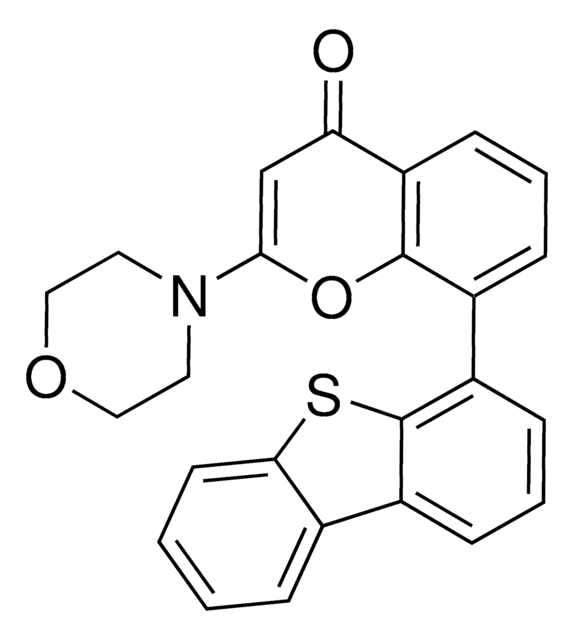SML1401
XL413 hydrochloride
≥98% (HPLC)
Synonym(s):
(S)-8-Chloro-2-(pyrrolidin-2-yl)benzofuro[3,2-d]pyrimidin-4(3H)-one hydrochloride, BMS-863233, XL-413
About This Item
Recommended Products
Quality Level
Assay
≥98% (HPLC)
form
powder
storage condition
desiccated
color
white to beige
solubility
H2O: 5 mg/mL, clear
storage temp.
−20°C
SMILES string
ClC1=CC2=C(C=C1)OC3=C2N=C([C@H]4NCCC4)NC3=O.C
InChI
1S/C14H12ClN3O2.CH4/c15-7-3-4-10-8(6-7)11-12(20-10)14(19)18-13(17-11)9-2-1-5-16-9;/h3-4,6,9,16H,1-2,5H2,(H,17,18,19);1H4/t9-;/m0./s1
InChI key
UYBMDYGAVMHMGF-FVGYRXGTSA-N
Biochem/physiol Actions
Signal Word
Danger
Hazard Statements
Precautionary Statements
Hazard Classifications
Acute Tox. 3 Oral
Storage Class Code
6.1C - Combustible acute toxic Cat.3 / toxic compounds or compounds which causing chronic effects
WGK
WGK 3
Flash Point(F)
Not applicable
Flash Point(C)
Not applicable
Choose from one of the most recent versions:
Certificates of Analysis (COA)
Don't see the Right Version?
If you require a particular version, you can look up a specific certificate by the Lot or Batch number.
Already Own This Product?
Find documentation for the products that you have recently purchased in the Document Library.
Our team of scientists has experience in all areas of research including Life Science, Material Science, Chemical Synthesis, Chromatography, Analytical and many others.
Contact Technical Service








